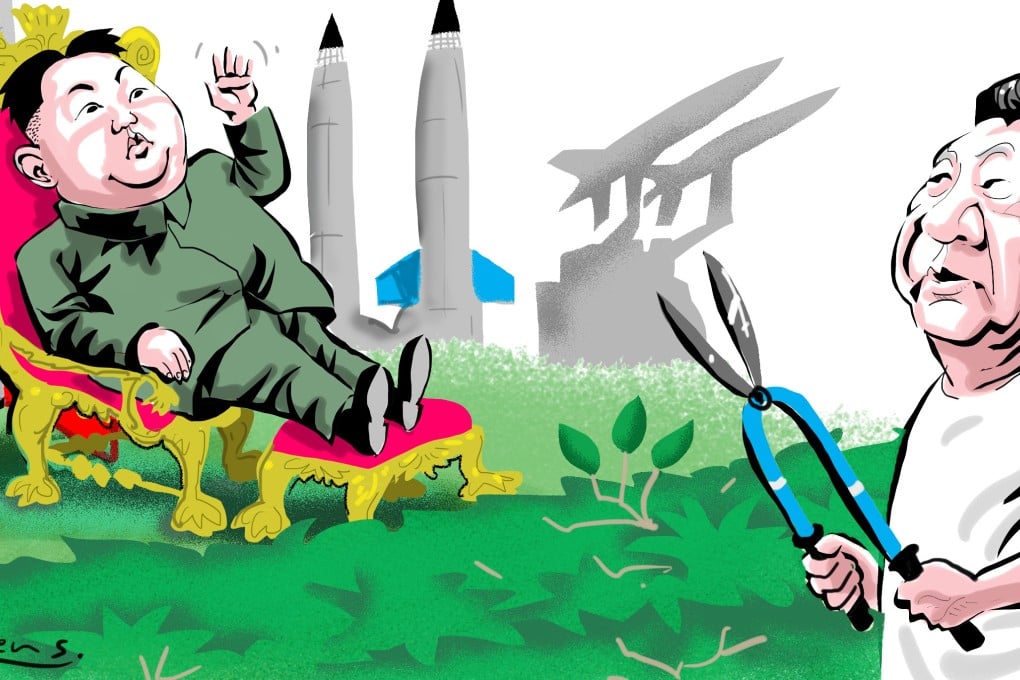For China, recognising North Korea as a nuclear power may be the most viable way to defuse crisis
Deng Yuwen and Huang Ting believe forcing Pyongyang to give up its nuclear plans would only provoke it further


READ MORE: North Korea threatens to turn US and the South into ‘flames and ashes’ with nuclear strikes as largest ever drills begin
In all this, Beijing is the biggest loser. The crisis puts China in a dilemma, and suggests the failure of its policy on North Korea’s nuclear programme
Japan is the largest beneficiary of Pyongyang’s move since the missile crisis gives Tokyo the perfect excuse to develop its own rockets. The US also benefits, as the Pentagon can deploy more advanced weapons to the Korean peninsula. As for South Korea, which enjoys the protection of its ally, the military force of North Korea should not worry it too much; conversely, it could use the occasion to raise a sense of crisis.
In all this, Beijing is the biggest loser. Not only does the crisis put China in a dilemma, it also suggests the failure of its policy on North Korea’s nuclear programme.
Beijing has four main fears. The first is that Washington may step in, posing a threat to China’s security. The second is that the harsh sanctions may irritate Pyongyang and cause a break in China-North Korea relations. Third, that the sanctions will cause the North’s economy to deteriorate to crisis levels, triggering a refugee crisis that would severely impede China’s development. The last concern relates to China’s tradition of non-interference in any country’s internal affairs.
READ MORE: China ‘must prepare for war over North Korea’s rocket launch and nuclear tests’

Of course, even if it weren’t being held back by security worries, Beijing can hardly formulate a policy that serves its own long-term needs without an accurate prediction of where the North Korean regime would go next.
Pyongyang will never give up its nuclear programme since this is what ensures the security of the regime
Accurate predictions are usually based on detailed research, information and personal experience. For a totalitarian, closed, impoverished and militaristic regime, however, it is still possible to make some forecasts based on historical experience. We know for starters that the Kim family has maintained its rule through numerous lies and crackdowns, and its military-first politics has bred a large rentier army, especially among the top echelons. So, it’s possible to make the following judgments.
First, Pyongyang will never give up its nuclear programme since this is what ensures the security of the regime. Unless the six-party talks recognise North Korea as a nuclear power, it will not return to negotiations which seek the dismantlement of its nuclear capabilities.
